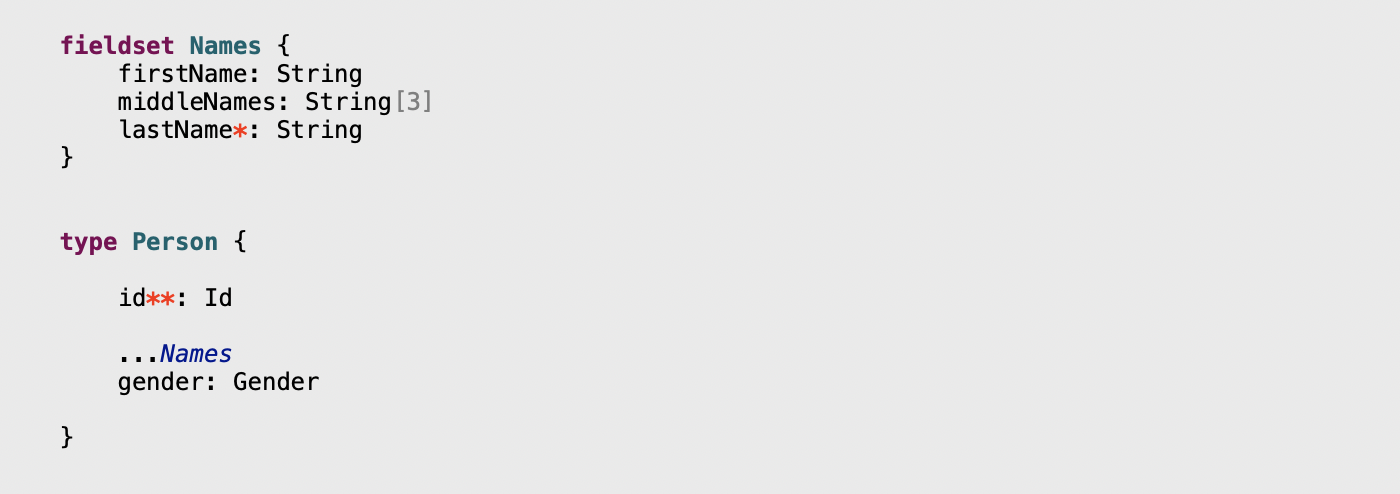Canonical Model
The file extension for canonical models in JoinedWorkz is: 'cmn'.
Canonical Model Elements
A canonical model file can contain one or multiple model elements of the following types:
Simple Type
A simple type can be:
- defined from scratch
- or be specialisation of another simple type
Syntax for definition of simple types:type<stereotype> name (typeParameters*) parameter=parameterValue*
In case the simple type is defined from scratch it needs to has one of the following stereotypes:
- string
- integer
- long
- decimal
- date
- time
- boolean
- binary
Some common simple types-types are defined in the common-base module: 
This module is published in Maven Central and intended to be used as a starting point.
Enum
Syntax for definition of enums:
enum<stereotype> name { enumItem: itemValue* }
A basic enum does not need to have a stereotype and in this case also no item values:

For enums with stereotypes their items need to have assigned values: 
Complex Type
The basic syntax for definition of a complex type:
type<stereotype> name extends baseType property=propertyValue* { field* method*}
Definition of a simple complex type: 
Definition of a complex type with an unique id, at least one salutation, not more then 3 middle names and a mandatory lastName: 
Complex types with behaviour can also define methods: 
Field
The basic syntax for definition a field:
field name: type(typeArgument) parameter=parameterValue

This construct allows to define fields which occurs in many complex types (but can there not be inherited) can so be defined only once (DRY).
FieldSet
In case multiple fields needs to be reused without inheritance field-sets can be used:

Service
The basic syntax for definition of a service:
service<stereotype> name property=propertyValue* { method* }
This defines a service with 2 methods:

Method Type
The basic syntax for definition of a method-type:
methodtype name verb property=propertyValue*
This example defines several method types which can be used in a REST Api:

Resource
The basic syntax for definition of a resource:
resource /resourceName: by resourceIdentifyingAtribute { methods* subresources* }
This is an example for a simple CRUD-resource: 
